Dementia is a debilitating condition that affects memory, cognition, and overall brain function. While many factors can contribute to the development of dementia, recent research has suggested a potential link between certain medications and an increased risk of developing dementia-related symptoms. It is important to note that these medications do not directly cause dementia, but they may be associated with an increased risk. This article will discuss ten medications that have been linked to dementia and some actionable steps to reduce the risk of developing this illness.
Read: Why You Should Never Mix Grapefruit with Medication
What Is Dementia?

Dementia is a general term that refers to a decline in cognitive function, including memory loss, impaired judgment and reasoning skills, and changes in personality. It is not a specific disease but rather a group of symptoms that many different conditions can cause. The most common form of dementia is Alzheimer’s disease (AD), which accounts for 60-80% of all cases. Dementia is a progressive condition, meaning that it gets worse over time. The symptoms of dementia can vary depending on the cause and severity of the disease, but they generally include memory loss, confusion, difficulty with language or communication skills, and changes in personality or behavior.
The exact cause of dementia is still unknown
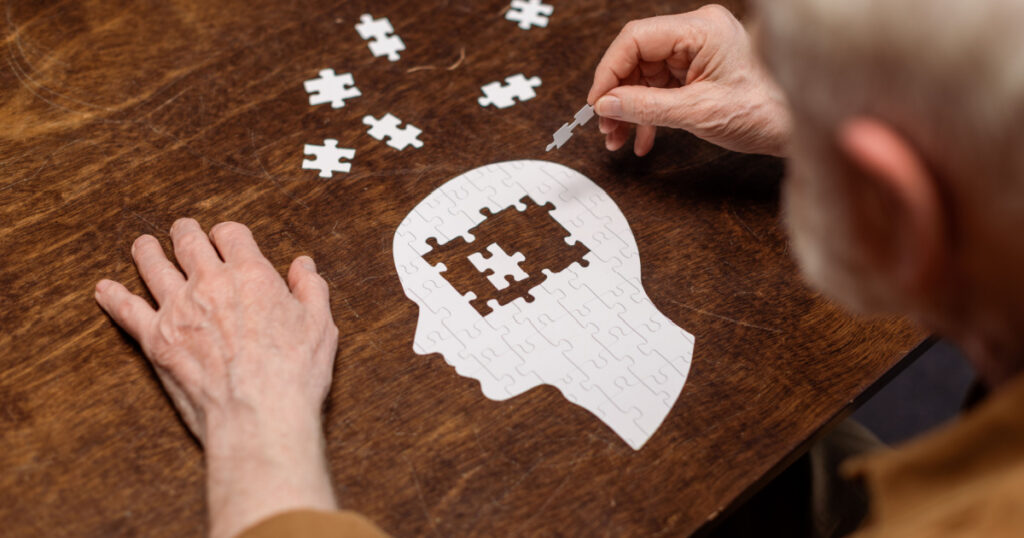
It is believed to be caused by a combination of genetic, environmental, and lifestyle factors. The risk of developing dementia increases with age, with most cases occurring in people over 65 years old. While there is currently no cure for Dementia, there are treatments to help manage the symptoms. Recently, researchers have found that certain medications may contribute to the risk of developing the disease.
Medications Linked to Dementia
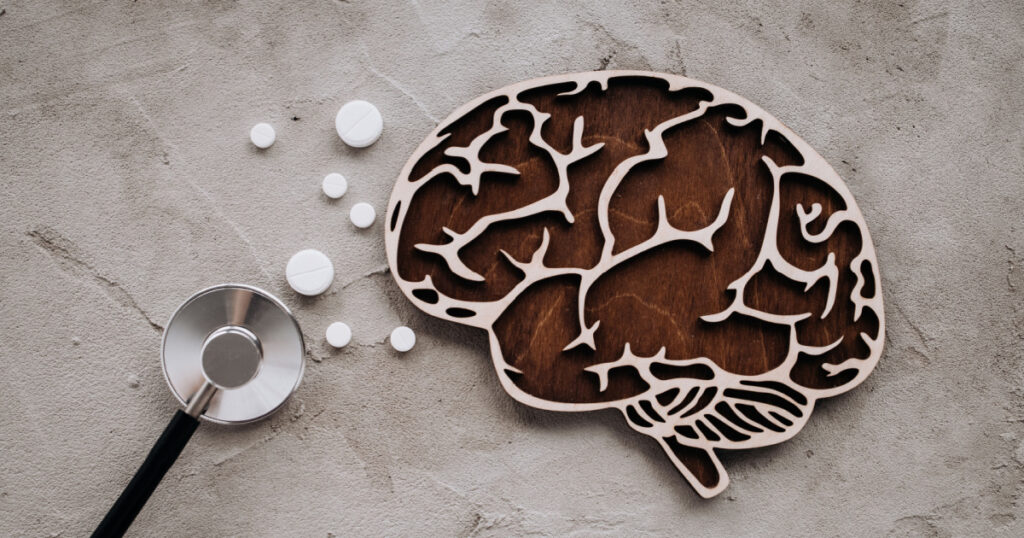
Medications are important and have helped many people to live longer happier lives. That being said, some medications have side effects or other negative impacts on health that we are only still discovering. One of these is their role in the risk of developing dementia. The following ten medications have been found to have a potential role in increasing dementia risk (1):
1. Anticholinergics and Antihistamines

This class of medications is commonly prescribed for various conditions such as allergies, overactive bladder, and depression. An example of this would be the common anti-allergy drug, Benadryl. Research suggests that long-term use of anticholinergic drugs may be associated with an increased risk of dementia. It is advised to explore alternative treatment options or speak with a healthcare professional to manage these conditions without relying on anticholinergic drugs. (2, 3) Certain over-the-counter antihistamines, including diphenhydramine, have been associated with an increased risk of developing dementia. It is recommended to limit the use of these medications, especially in older adults, and consider alternative options for managing allergies or sleep issues.
2. Benzodiazepines
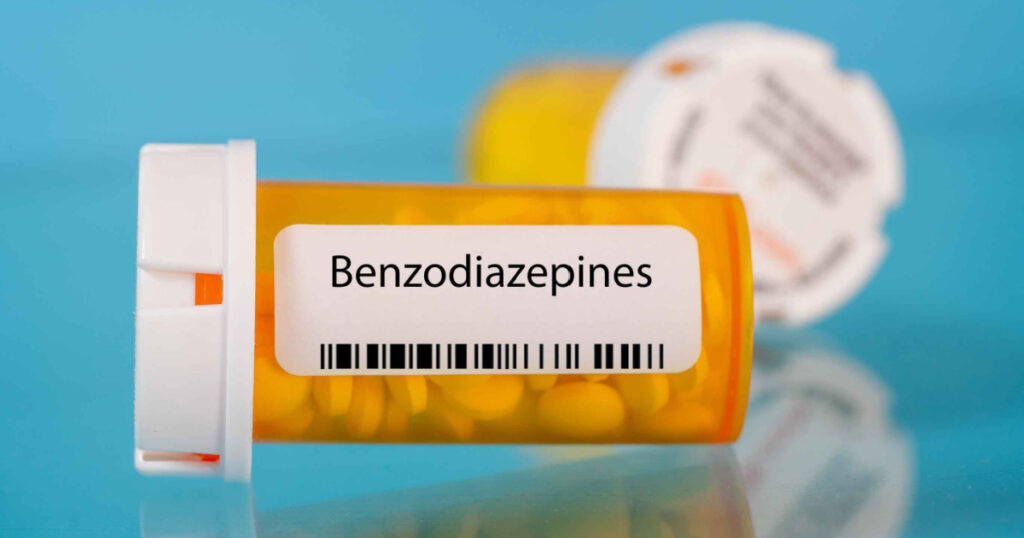
These medications are often prescribed as sedatives or muscle relaxants. Studies have found a potential link between long-term benzodiazepine use and an increased risk of dementia. If possible, it is recommended to explore non-pharmacological approaches or consider alternative medications with fewer side effects.
3. Proton Pump Inhibitors (PPIs)

PPIs are commonly prescribed for acid reflux and stomach ulcers. While PPIs are generally safe for short-term use, long-term use has been associated with an increased risk of cognitive decline and dementia. It is advisable to use PPIs only when necessary and for the shortest period possible.
Read: Study: Deadly Flesh-Eating Genital Infection Linked to Certain Diabetes Medication
4. Antidepressants

Certain types of antidepressants, such as tricyclic antidepressants (TCAs), have been linked to a higher risk of dementia. However, the risk appears to be relatively small and varies depending on individual factors. It is important to discuss the potential risks and benefits of antidepressant use with a healthcare professional. (4)
5. Antipsychotics
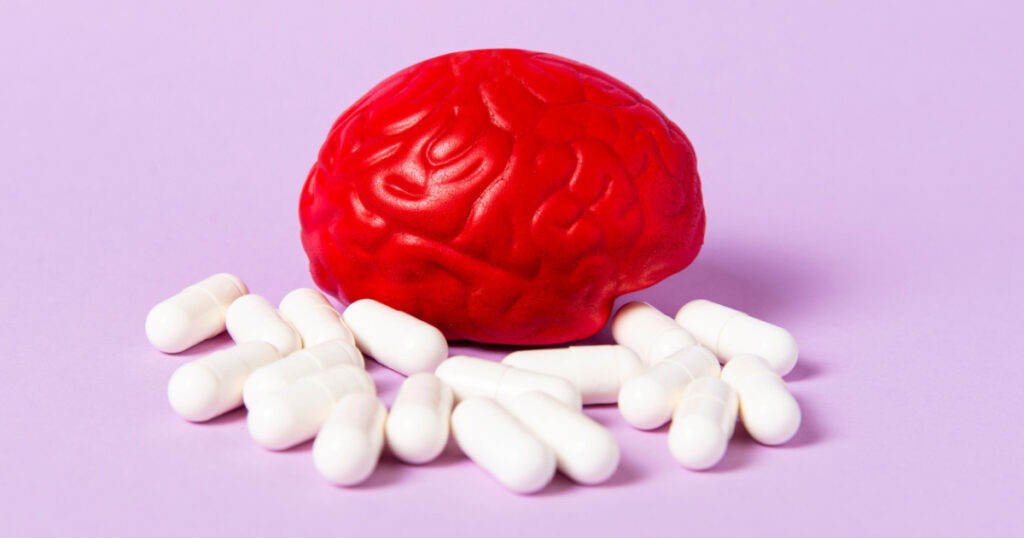
These medications are commonly prescribed for conditions like schizophrenia and bipolar disorder. While antipsychotics can be beneficial for managing severe mental illnesses, long-term use has been associated with an increased risk of cognitive decline and dementia. It is essential to regularly review and reassess the necessity of antipsychotic medications and explore non-pharmacological interventions whenever possible.
6. Sleeping Pills

Medications commonly used to treat insomnia, such as zolpidem and zaleplon, have been linked to an increased risk of dementia. It is advisable first to explore behavioral and lifestyle changes to improve sleep quality before considering medication options.
Read: 5 Easy Brain Hacks to Calm Anxiety Without Medications
7. Statins
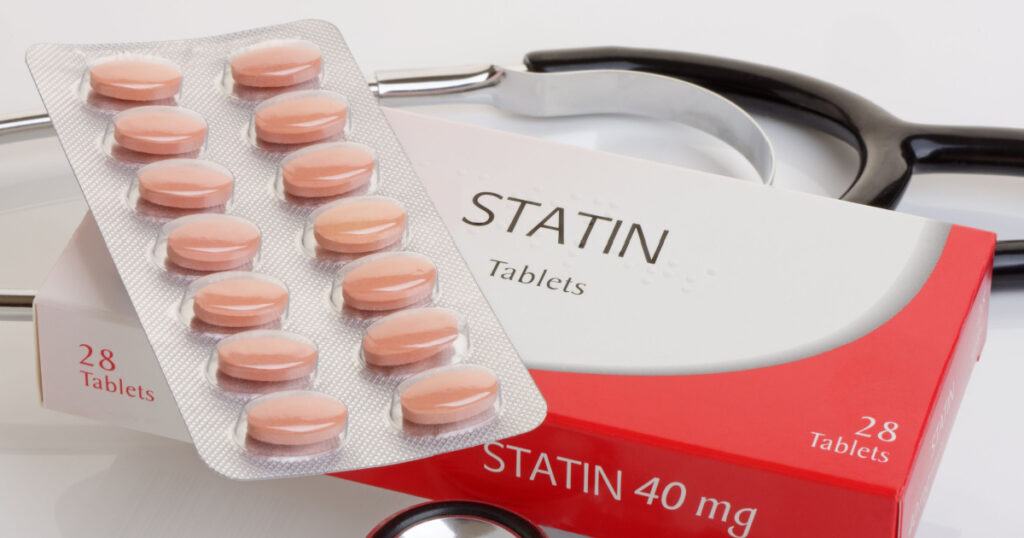
Statins are widely prescribed to lower cholesterol levels and reduce the risk of cardiovascular diseases. There is some evidence suggesting that statin use may be associated with a higher risk of dementia. However, the benefits of statins in preventing heart disease often outweigh the potential risks. It is crucial to have an informed discussion with a healthcare professional regarding the benefits and risks of statin use.
8. Pain Medications

Pain medications are commonly used to treat chronic pain. There is some evidence suggesting that long-term use of opioids may increase the risk of dementia. However, the benefits of pain relief often outweigh the potential risks. It is crucial to have an informed discussion with a healthcare professional regarding the benefits and risks of opioid use. NSAIDs have also been found to increase the risk of dementia. The risk will depend on how often you have to use them. Again, the benefits of pain relief are likely more impactful on your health than the risk of dementia, so speak with your doctor if you have concerns.
9. Medications for Bladder Control

Some medications used to manage overactive bladder, such as oxybutynin, have been linked to an increased risk of dementia. It is advisable to explore non-pharmacological approaches, behavioral modifications, or alternative medications with fewer cognitive side effects.
Read: How to Help Lower Cholesterol Without Medication
10. Corticosteroids
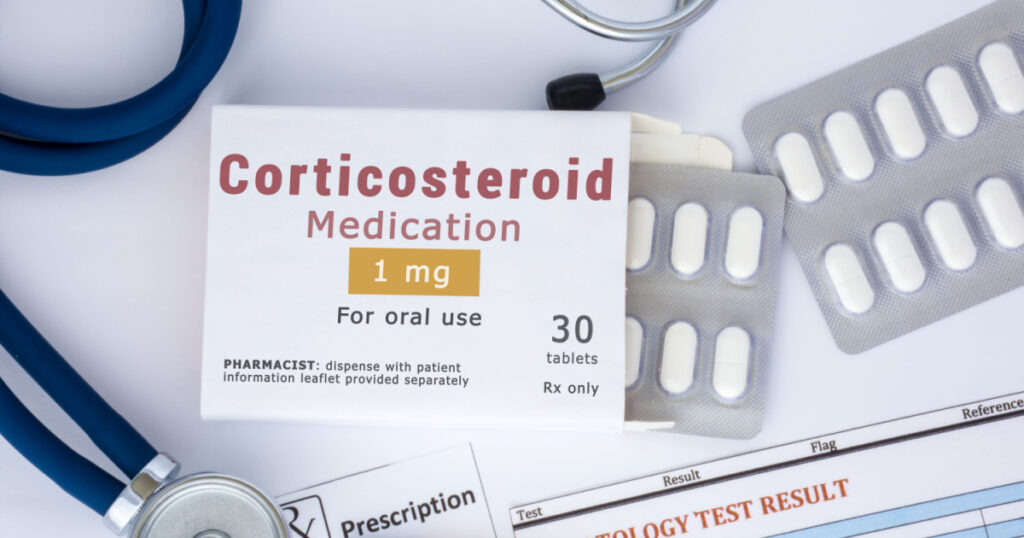
Long-term use of corticosteroids, commonly prescribed to manage conditions like asthma, arthritis, and autoimmune diseases, has been associated with an increased risk of cognitive decline and dementia. It is important to use corticosteroids at the lowest effective dose for the shortest duration possible.
Reducing the Risk of Developing Dementia

While the above medications have been associated with an increased risk of dementia, it is essential to note that individual responses to medications may vary.
To best try and reduce the risk of developing dementia for those taking these medications, consider the following actionable steps (5):

- Consult a healthcare professional: If you are currently taking any of the medications mentioned above, it is crucial to have an open and informed discussion with your healthcare provider. They can assess your individual risk factors, evaluate the necessity of medication use, and explore alternative treatment options whenever possible.
- Regular medication reviews: Periodically review your medication list with a healthcare professional to assess the ongoing necessity of each medication. This can help identify any potential risks or side effects that may increase the risk of dementia.
- Explore non-pharmacological alternatives: For conditions that can be managed without relying on medications, such as lifestyle changes, behavioral interventions, or therapy, consider exploring these options as an alternative to medication use.
- Monitor cognitive function: Regularly assess and monitor your cognitive function. Speak with a healthcare professional if you notice any changes or concerns, as early detection and intervention can be crucial in managing cognitive decline.
- Lead a healthy lifestyle: Engaging in regular physical exercise, maintaining a balanced and nutritious diet, managing chronic health conditions effectively, getting sufficient sleep, and staying mentally and socially active can all contribute to maintaining brain health and reducing the risk of dementia.
Read: The Medications That Change Who We Are
General Dementia Prevention Strategies

- Stay mentally active: Engage in activities that challenge your brain regularly, such as puzzles, reading, learning new skills, or playing musical instruments. Mental stimulation has been linked to better cognitive health.
- Maintain social connections: Stay socially engaged with friends, family, and community. Participate in social activities, attend gatherings, and join clubs or groups with shared interests.
- Manage vascular health: Maintain healthy blood pressure, cholesterol levels, and blood sugar levels. Adopt a heart-healthy diet, exercise regularly, avoid smoking, and limit alcohol consumption.
- Protect your head: Wear protective headgear during activities that may increase the risk of head injuries. Taking precautions can help reduce the risk of traumatic brain injuries, which can increase the risk of developing dementia.
- Get regular check-ups: Schedule routine check-ups with healthcare professionals to monitor and manage chronic health conditions effectively. This can help identify any potential risk factors and allow for timely intervention.
- Maintain a healthy sleep schedule: Prioritize quality sleep by practicing good sleep hygiene. Establish a regular sleep routine, create a comfortable sleep environment, and address any underlying sleep disorders.
- Manage stress: Chronic stress can have detrimental effects on brain health. Develop healthy coping mechanisms and incorporate stress management techniques like meditation or relaxation exercises into your daily routine.
The Bottom Line

By following these actionable steps and general dementia prevention strategies, individuals can potentially reduce their risk of developing dementia, especially when medication use is a concern. It is important to note that the relationship between medications and dementia risk is complex, and individual factors can significantly influence the level of risk. Therefore, it is crucial to consult with healthcare professionals for personalized advice and guidance regarding medication use and dementia prevention.
Read More: Before Dementia Sets in, Your Body Will Give You These 12 Early Warning Signs
Sources
- “A List of Drugs Linked to Dementia.” GoodRx. Nicole Rowe, MD. November 18, 2022.
- “Two types of drugs you may want to avoid for the sake of your brain.” Harvard. March 2, 2021.
- “Common anticholinergic drugs like Benadryl linked to increased dementia risk.” Harvard. January 19, 2022.
- “Caution! These Drugs Can Cause Memory Loss.” AARP. Dr. Armon B. Neel. February 9, 2016.
- “How can I reduce the risk of dementia?” Alzheimer
Disclaimer: This information is not intended to be a substitute for professional medical advice, diagnosis or treatment and is for information only. Always seek the advice of your physician or another qualified health provider with any questions about your medical condition and/or current medication. Do not disregard professional medical advice or delay seeking advice or treatment because of something you have read here.

